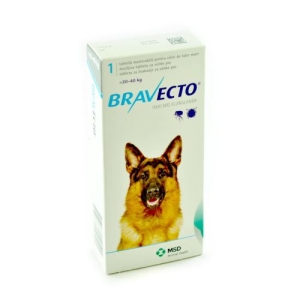About Lyme Disease in Dogs: Symptoms, Diagnosis and Treatment
The good weather has arrived, and nature walks become a joy for us and our furry friends. However, among the green leaves and multi-colored flowers hides the tick carrying Lyme disease or Lyme disease, as the condition is also known.
WHAT IS LYME DISEASE?
Lyme disease is a serious bacterial infection transmitted to dogs by biting an infected tick. Although the disease can also be transmitted to humans, dogs are most likely affected.
How does Lyme disease manifest itself in dogs?
Symptoms may appear weeks or even months after the tick bite and may include:
- Fever: An increase in body temperature that may be difficult to see.
- Lethargy: The dog appears tired, lacks energy and has little desire to play or walk.
- Joint pain: The dog may limp, have difficulty walking and exhibit joint stiffness.
- Swollen lymph nodes: Lymph nodes around the neck and head may be enlarged and tender to the touch.
- Loss of appetite: The animal refuses food or has a reduced appetite.
- Behavioral changes: The dog may become irritable, aggressive or apathetic.
HOW CAN I DIAGNOSE MY DOG’S LYME DISEASE?
As always, we recommend visiting your veterinarian to diagnose Lyme disease. through:
- Clinical signs: The doctor will examine the animal and consider the medical history and lifestyle.
- Blood tests: Specific tests can be done to detect the presence of antibodies against the bacterium Borrelia burgdorferi.
- Other tests: In some cases, additional tests, such as X-rays or ultrasounds, may be needed to evaluate possible joint or heart damage.
HOW CAN I TREAT LYME DISEASE?
Fortunately, Lyme disease is treatable with specific antibiotics. The duration of treatment varies depending on the disease’s severity and the animal’s general health. Fortunately, there are methods of protection against tick bites in dogs.
How can I protect my dog from Lyme disease?
Prevention is key to protecting your furry friend from Lyme disease. Here are some steps you can take:
- Vaccination: Talk to your vet about annual Lyme disease vaccination.
- Tick control: Use antiparasitic products your veterinarian recommends to prevent tick infestation.
- Regular examinations: Carefully examine the animal’s fur after each walk to detect and remove ticks. Both external and internal deworming are essential and mandatory!
Prognosis of Lyme disease
With early diagnosis and proper treatment, most dogs infected with Lyme disease fully recover.
Remember: Lyme disease can be a serious illness, but it’s important not to panic. With a preventative approach and careful monitoring, you can protect your furry friend and enjoy summers full of play and adventure!




